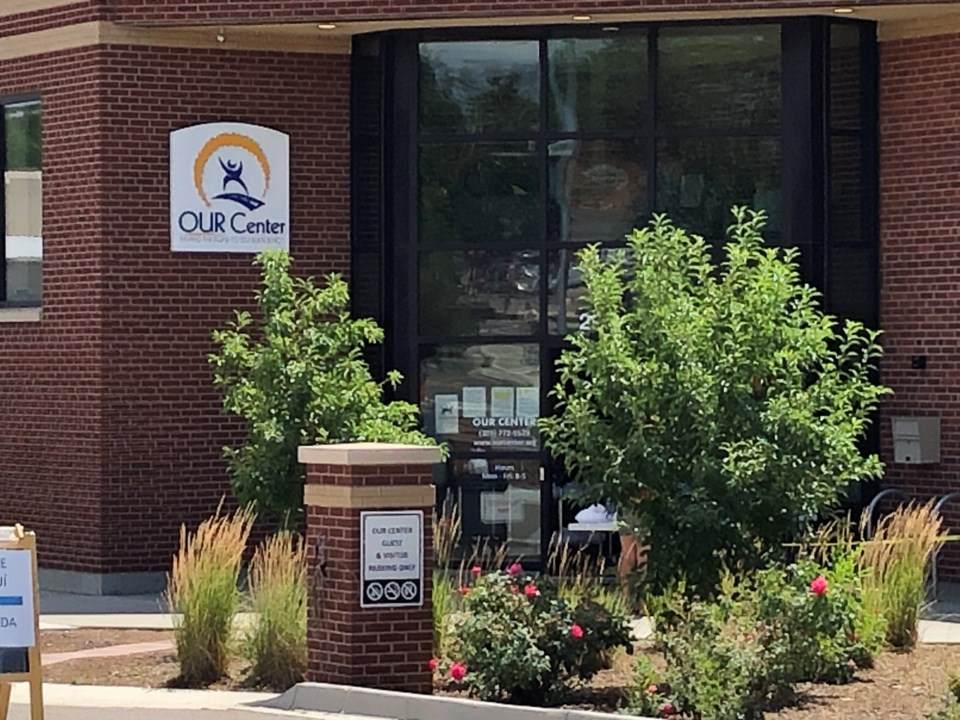Longmont’s Outreach United Resource, or OUR, Center was one of several agencies that received emergency funding from Boulder County to bolster services during the first five months of the COVID-19 pandemic, officials said earlier this month.
Between March and July, the Boulder County departments of Housing and Human Services and Community Services directly invested $4.4 million in community-based support and nonprofit organizations for additional housing and food assistance, employment help, financial assistance, services for older adults and for people experiencing homelessness, according to a news release.
“We acted quickly to double rental assistance, boost child care spending by $1 million, provide $515,000 in surge funding to our community partners, and advocate for enhanced benefits from federal programs such as an additional $7 million in emergency food assistance for our residents,” Boulder County Commissioner Matt Jones stated in the news release.
Boulder County is using both the federal Coronavirus Aid, Relief and Economic Security, or CARES, Act and county dollars to fund critical services, Jones stated.
The investments have supported increased services for county programs including Workforce Boulder County’s call center, meal services provided by the Area Agency on Aging and rental assistance and comprehensive housing support provided through the county’s Housing Helpline, according to the release.
The OUR Center also received additional funding to support significant hikes in the need for housing and utility payment assistance, food, medical care and more, the release stated.
“... We did receive additional funds at the beginning of the pandemic that was instrumental in the OUR Center’s ability to respond to the community needs,” Marc Cowell, executive director of the OUR Center, said via email.
The funding helped “while we worked swiftly to obtain the resources necessary to position the OUR Center to meet the long-term needs of those adversely affected by this crisis,” Cowell said.
Other community groups that received financial help from Boulder County during the first stages of the pandemic included Sister Carmen Community Center in Lafayette, the Emergency Family Assistance Association in Boulder and Clinica and Salud family health centers.
Boulder County also is using resources to help close gaps in access to COVID-19 services and support in the Latinx community and for other traditionally marginalized groups, according to the news release.
Hispanics in Boulder County have seen a disproportionate impact from the pandemic. As of Oct. 8, close to 30% of county residents who tested positive for or were probable for COVID-19 were Hispanic or Latinx, according to Boulder County Public Health data. About half, 44.7%, of those hospitalized because of COVID also were members of the Latino community.
“Our equity work also helps ensure that all residents have full access to services and support during COVID-19,” Commissioner Elise Jones stated in the release. “We’re working with and in these communities to increasingly provide culturally competent and relevant programming, communication, language assistance and bilingual services.”
The release also outlined how county departments responded during the first five months of the pandemic:
- The Boulder County Department of Housing and Human Services served more than 75,000 residents.
-
The Boulder County Community Service Department’s Workforce Boulder County program helped nearly 2,000 new customers, receiving more than 28,000 new unemployment insurance claims and over 7,000 calls.
-
The county’s COVID-19 resources pages in English and Spanish received more 50,000 views with an average of over four minutes spent per visit.
Community and partner organizations also reported a doubling or tripling in need for help with housing and food, according to the release.
In addition to the county’s direct work and investments, the Boulder County Funders Collaborative, a coalition of nonprofits, foundations and county departments directed an additional $3.5 million to groups and services to help respond to COVID-19, the news stated.


